nijs to treat
Nijsen is a family-owned company, based in Veulen, near Venray in the south of the Netherlands. With a dedicated team of more than 100 colleagues, we work towards creating greater sustainability in food production. We are the only compound feed producer in the Netherlands to produce unique Food-For-Feed® raw materials using foodstuffs that are otherwise considered as waste. Our animal feeds really make the difference in profitability for farmers and enhanced sustainability.
30 years of experience
At Nijsen, we now have almost 30 years of experience in this segment and can produce (pig) feed that comprises up to 100% foodstuff residual streams, processed into circular Food-For-Feed® raw materials.
> 100,000 tons/year repurposed resources
Every year more than 100,000 tons of foodstuffs are repurposed and processed into high-grade, appetising feed for pigs or Kipster chickens.
Together with our customers, this forms our contribution to circular agriculture and greater sustainability in the pig and poultry production sectors. For sustainably produced, delicious eggs and meat.
Seven advantages
Pig producers can boost their profits thanks to the specific properties of the Food-For-Feed® raw materials such as a good feed conversion rate and balanced composition.
Pig producers can:
- Feed more efficiently;
- Reduce phosphate emissions;
- Lower their costs for manure disposal;
- Achieve a higher growth rate per pigs;
- Supply more pigs;
- Produce tastier and better quality meat;
- Supply feed that is more sustainable and therefore reduce the CO2 footprint of their farms.
Feed the world
Incredible amounts of land and water are needed to grow te cereal crops and soya to support the 20 billion livestock that produce meat, milk and eggs (at the same time 800 million people suffer from starvation).
On a global scale, farming is responsible for a quarter of the total release of greenhouse gas emissions. The main contribution factors are livestock farming and deforestation to clear land for agricultural use. Fortunately, all over the world attention is growing for climate-smart agriculture, such as planting trees near agricultural land.
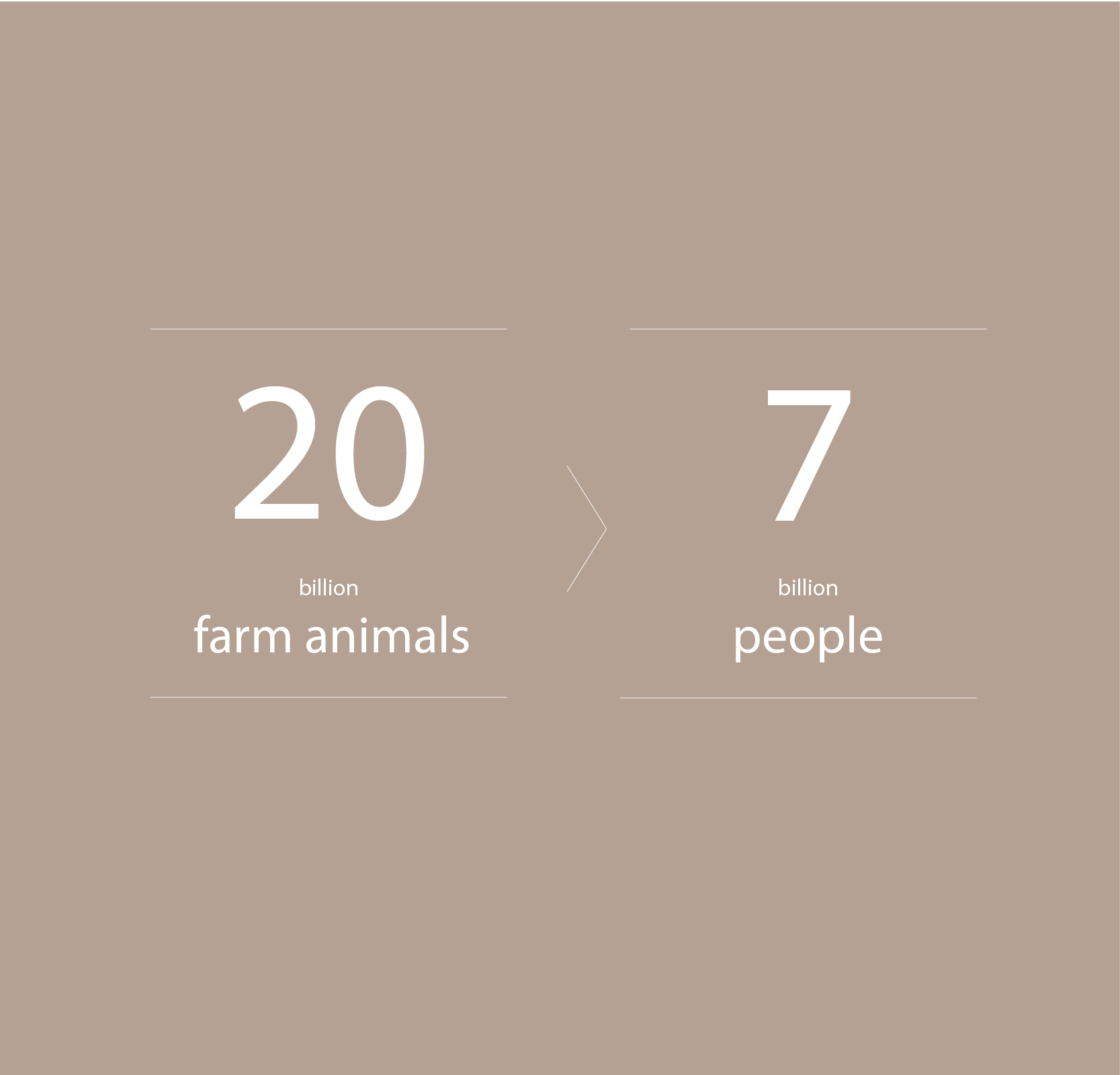
Growing attention
for climate-smart
agriculture, worldwide!
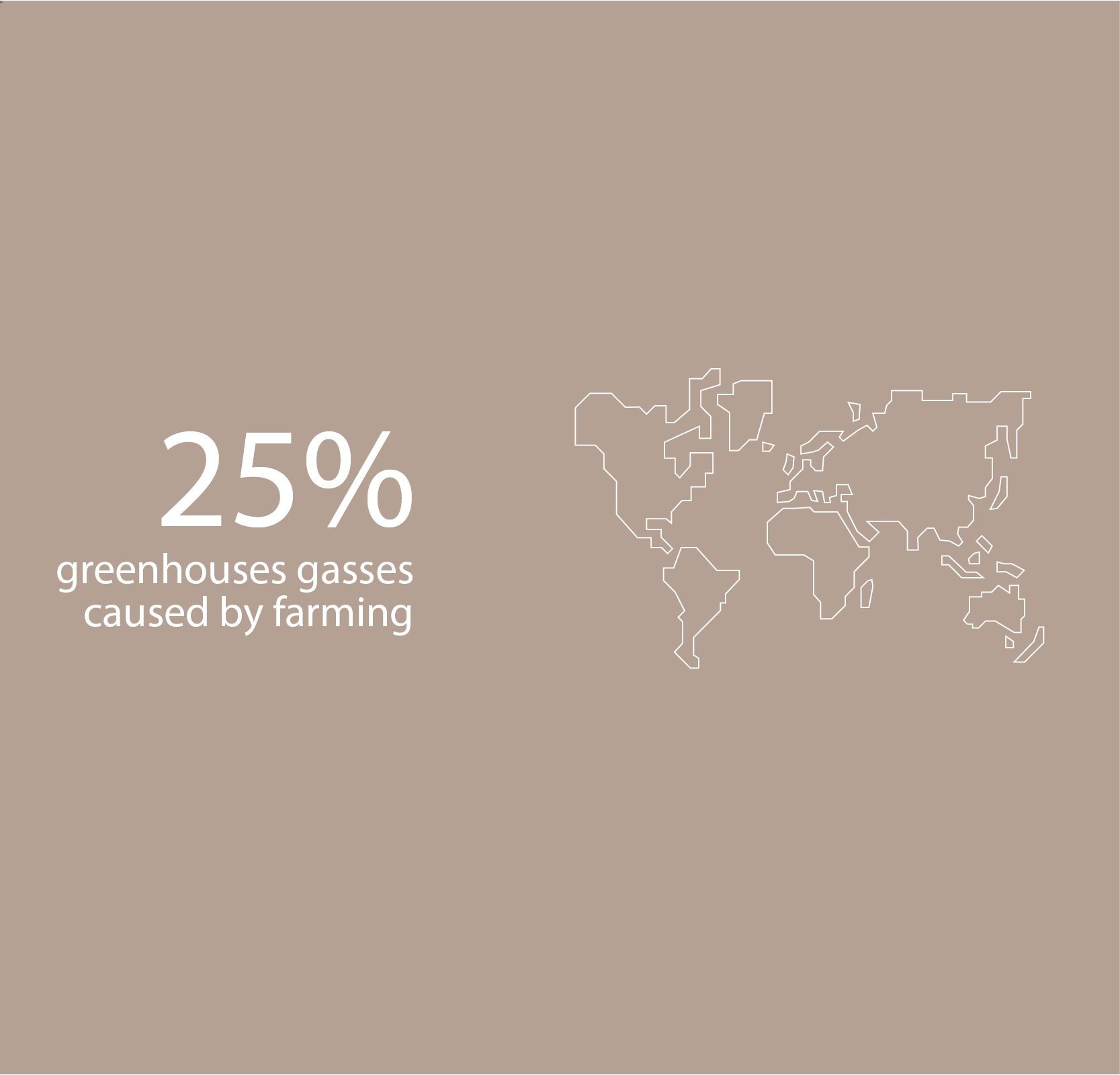
Breakdown people & animals
Cereal grain production worldwide

Cereal grain production The Netherlands

Breakdown agricultural land worldwide

How much do livestock eat?*
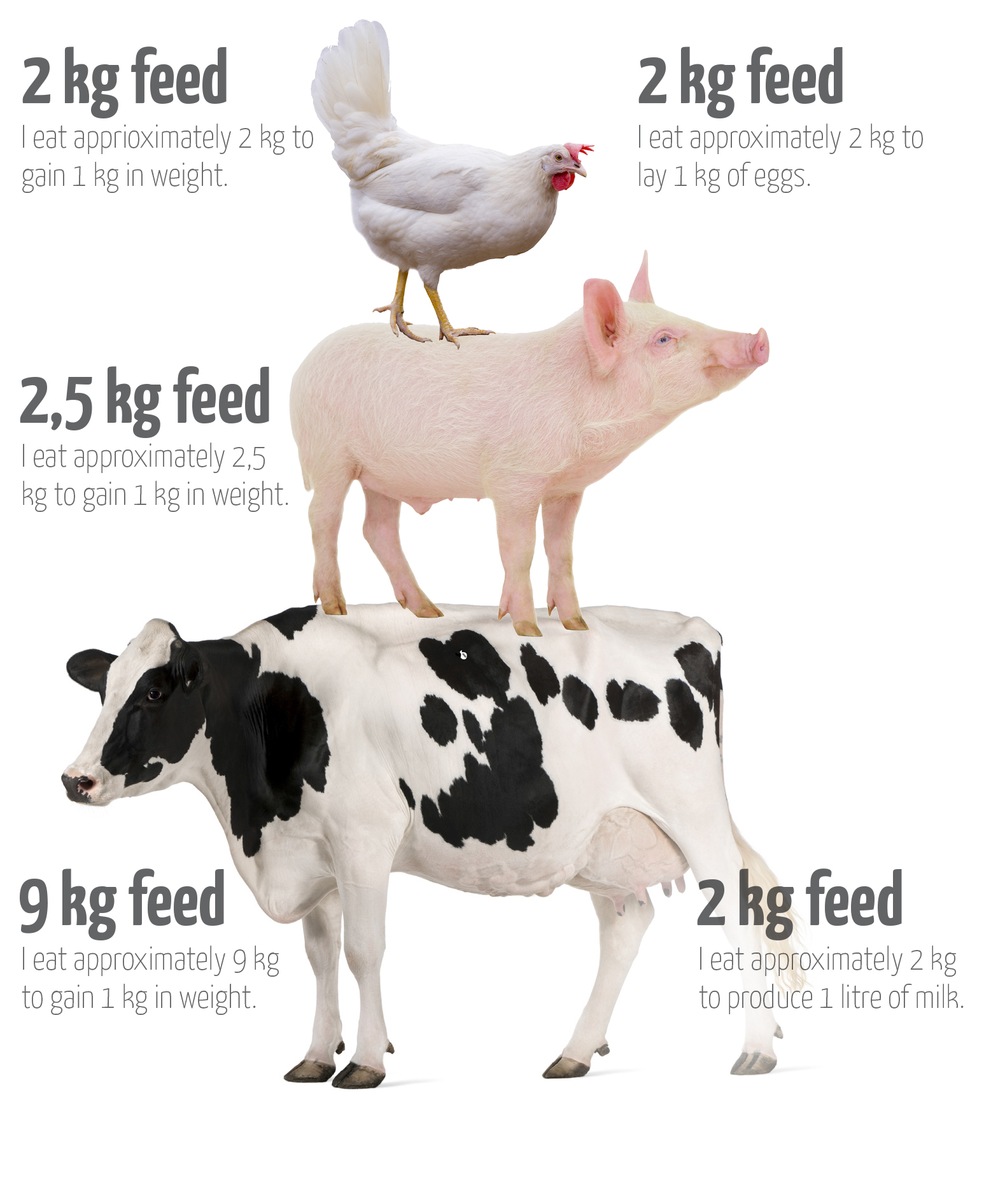
Food into Feed
In the past, pigs and poultry were free to roam around in the farmyard and eat what they found.
Residential food scraps were collected in towns and cities and fed to livestock
Better for the environment
Agricultural produce was for human consumption, the waste left on the land was for the animals.
The pigs and poultry fed our animal feed, also eat our food waste.

Reduced Carbon Footprint
By processing high-value waste streams from the food industry into animal feed,
we can significantly reduce the carbon footprint of our feed.
This means we can reduce our imports of raw materials, and effictively ‘use’ less agricultural land,
resulting in considerably lower CO2 emissions.
Feed the animals
Pigs and Kipster chickens eat hig-grade feed made from waste that people don’t eat.
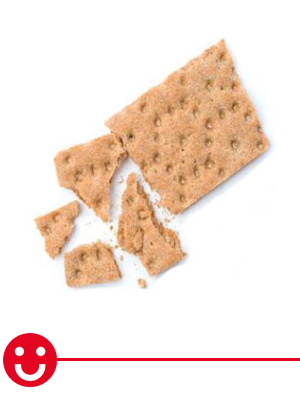
Surplus and waste
We produce Kipster chickens and pig feed form waste and rejected products from the bakery industry.
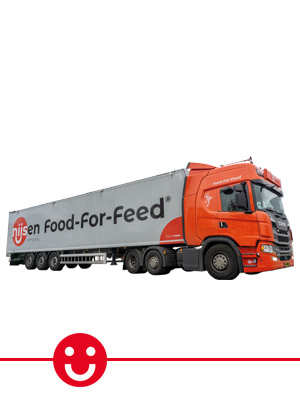
Special
transport
Surplus production and waste are collected from large bakery concerns according to a strictly monitored production.
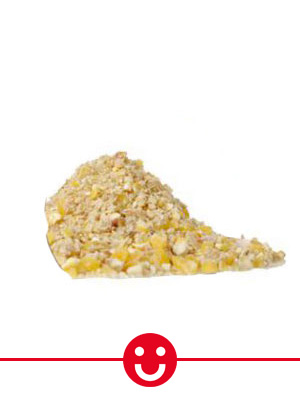
High grade
feed
We produce safe, high-grade feed for Kipster chickens and pigs at our feed production plant.
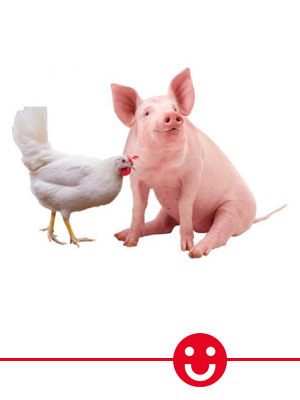
Nutritious and appetising
Kipster chickens eat this feed and lay tasty eggs. Pigs need less feed for growth.
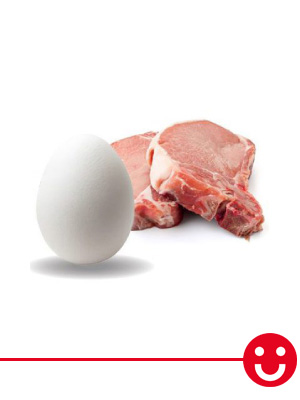
Enjoy
your meal
Enjoy a delicious egg of piece of meat that has placed a substantially reduced burden on the environment.
